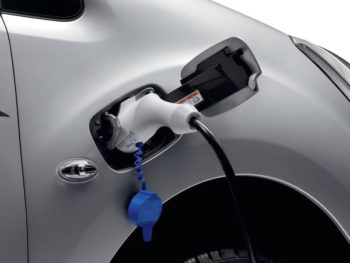Move petrol and diesel car ban to 2030, say UK government’s eco advisors
The UK government’s 2040 target of ending sales of new petrol and diesel cars/vans is too late to tackle climate change and should be moved to 2030, according to its official environmental advisors.

The report says achieving net zero greenhouse gas emissions by 2050 will require all new cars and vans to be pure battery electric by 2035 latest
The Committee on Climate Change’s newly published Net Zero report calls for a new UK emissions target of net-zero greenhouse gases by 2050 to replace the current target of an 80% reduction against 1990 levels; a move it says is “necessary, feasible and cost-effective”. But getting all cars and vans to be electric by 2050 will require all sales to be pure battery electric – not hybrids – by 2035 at the latest, and ideally by 2030.
By 2030, electric cars will be both cheaper to purchase and run than conventional cars even without existing subsidies or advantageous tax treatment.
However, the report adds that this will require 3,500 rapid and ultra-rapid chargers near motorways to enable long journeys and 210,000 public chargers in towns and cities. Today in total there are 21,000 public chargers of all speeds.
Meanwhile smart charging solutions will be important in ensuring that demand peaks are manageable and the report also warns that many networks will need to be upgraded in a timely manner and future-proofed to limit costs and enable rapid uptake of electric vehicles.
And the Net Zero report also calls on cities and local authorities to have input, saying they are well placed to understand the needs and opportunities in their local area and play important roles on transport planning, including providing high-quality infrastructure for walking and cycling and provision of charging infrastructure for electric vehicles.
The report also urges the use of Clean Air Zones to discourage the use of polluting vehicles and other technologies.
Finally, the report from the Government’s climate change advisers also sets out ways for individuals and households to take action on the way they travel; from switching to walking/ cycling/public transport, to opting for an electric car and charging it smartly and also – in line with the growing wave of ‘flight shame’ – to minimise flying, especially long-haul.
The report significantly ups the ante on the Government’s current 2040 ‘ambition’ on new cars and vans – first outlined in 2011 and reiterated in the 2017 air quality plan and the Road to Zero Strategy – not least as the 2040 ambition allows for full hybrids as well as pure electric vehicles.
And it’s not the first time the Government has been urged to move the date forwards or been told that its current strategy for delivering its “ambition” are too vague. MPs on the Business, Energy and Industrial Strategy Committee published a report six months ago saying that the target must be brought forwards to 2032 – the same date already set by the Scottish Government for its phase-out plans – and backed up by meaningful purchase incentives and a truly nationwide charging infrastructure. UK cities have also called for an earlier ban along with the WWF, which says it could help add £3bn to the UK economy and create 14,000 jobs in auto industry.
It’s not just transport that comes under focus in the CCC Net Zero report; it also urges the implementation of a range of other measures to meet the more stringent greenhouse gas emission targets. And it says these could actually be met by Scotland by the earlier date of 2045 although it acknowledges that Wales has slightly lower opportunities than the UK as a whole, and should adopt a target for a 95% reduction in greenhouse gas emissions by 2050.
Lord Deben, chairman of the Committee on Climate Change, said: “We can all see that the climate is changing and it needs a serious response. The great news is that it is not only possible for the UK to play its full part – we explain how in our new report – but it can be done within the cost envelope that Parliament has already accepted. The Government should accept the recommendations and set about making the changes needed to deliver them without delay.”
The report has been welcomed by lobby group Transport & Environment. Greg Archer, UK director of T&E, said: “Existing government plans to phase out some cars with engines by 2040 are too little too late and the committee’s proposal to end sales of cars with engines by 2030-35 are spot-on. The UK government now needs to back the vision and put in place the framework that enables UK businesses to lead the transition. It should start by increasing taxes on new gas guzzlers to fund tax breaks for zero-emission cars and investments in recharging.”
Environmental law firm ClientEarth also welcomed the findings. Climate accountability lawyer Jonathan Church said: “At a time when the urgency of climate change could not be more stark, this report sets out a bold and optimistic future for the UK to be climate neutral by 2050.
“We now need this Net Zero by 2050 target to be put in place right away because every month of delay will make achieving it more challenging and less cost-effective in the future.”

